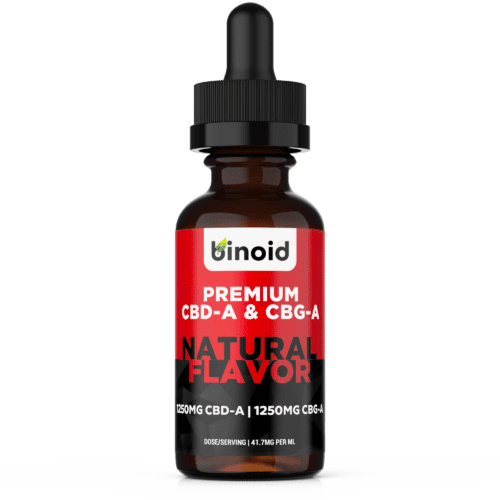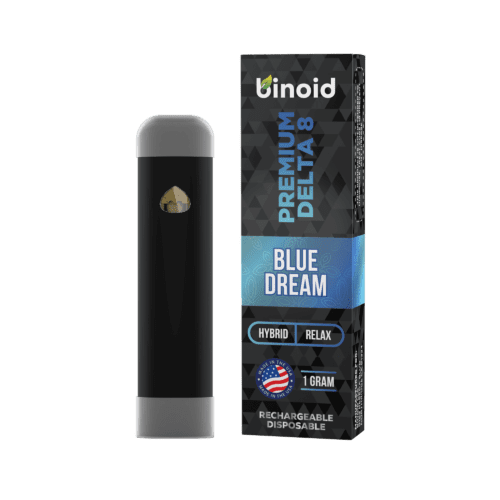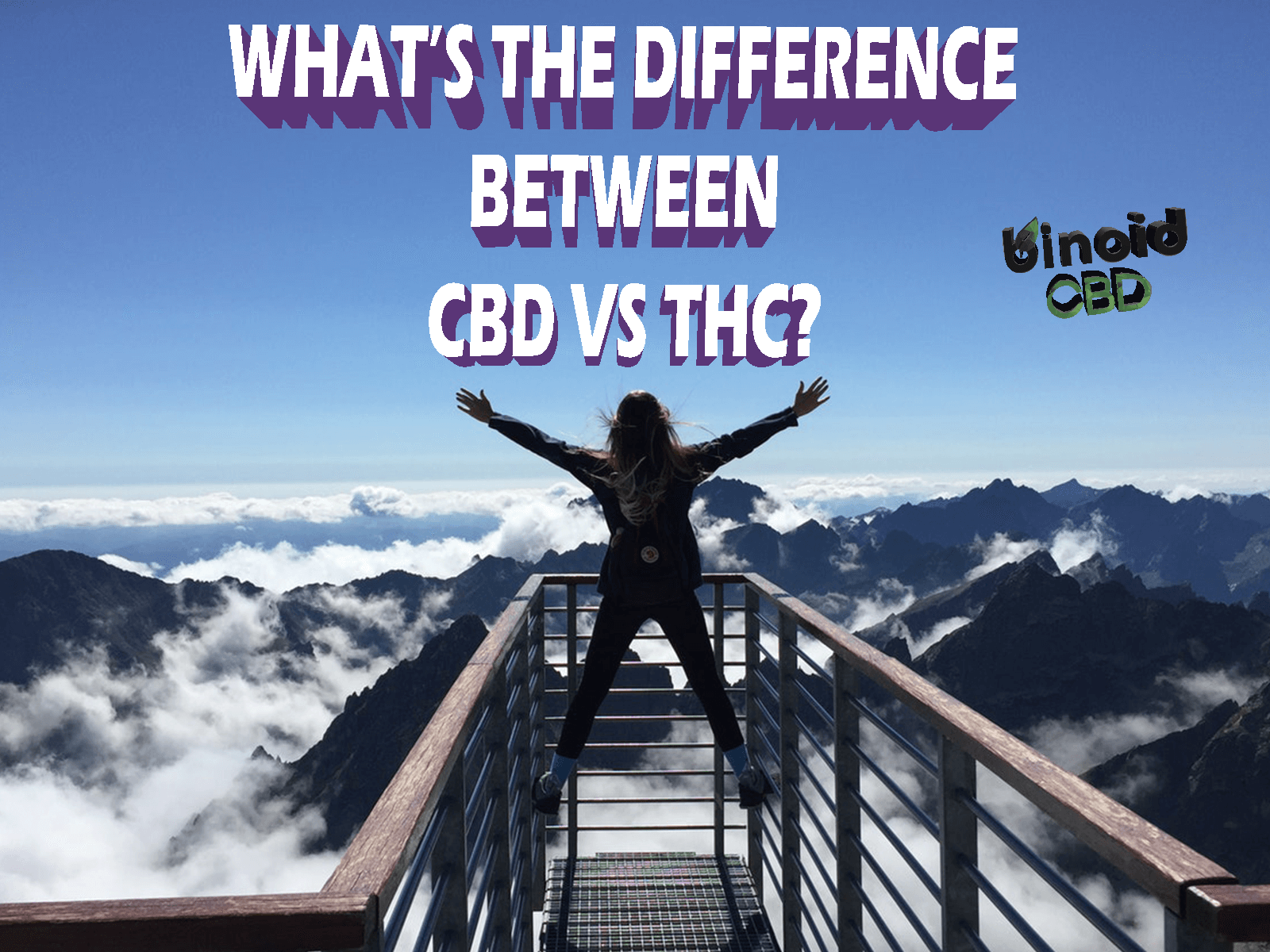
CBD vs. THC: Major Differences, Similarities & Benefits
The difference between CBD vs THC starts with knowing what they are and what they stand for.
CBD stands for Cannabidiol while THC stands for Tetrahydrocannabinol. Both CBD and THC are chemical compounds and components of the Cannabis Sativa plant species. More formally called Phytocannabinoids, which are naturally occuring cannabinoids found in the cannabis plants. Cannabinoid is another term for components or compounds.
Both compounds have many things in common. However their characteristics, effects, and structure could not be more different. Let’s break them both down.
CBD and THC are two different components (more on this later) that are found in the Cannabis Sativa plant. There are two breeds within this plant family, the more famous Marijuana, and the lesser known sister Hemp. Within these plants, there are different ratios and amounts of both CBD and THC in them.
As you can see from the picture above, both compounds look very similar, if not exact for the untrained eye. There are two minor differences between them. One is at the bottom left and the other is in the aromatic compound called the benzene ring (the hexagon shape) on the right side. You can see that the differences are fairly small. This is due to the fact they both originate from the same compound CBGA, but each interact with two separate synthases to become THC and CBD. This interaction is a significant reason for the side effects and interaction results with our bodies. We will get into this in more detail further on.
CBD and THC are two out of over 400 cannabinoids found in the cannabis plant in total. Out of those 400 cannabinoids, 116 have been individually identified cannabinoids. However, out of the 116 identified cannabinoids, only a few of them are of a high percentage. Most of these compounds such as CBN, CBG amd CBC are 1% or less of the total makeup of the plant. CBD and THC are the two main cannabinoids of both plants, which is why they are so important. And soon to be very popular in our culture. If not already are.
Before we get into the differences between them, I will outline what each one is, their benefits and side effects, then compare them.
-
Product on sale
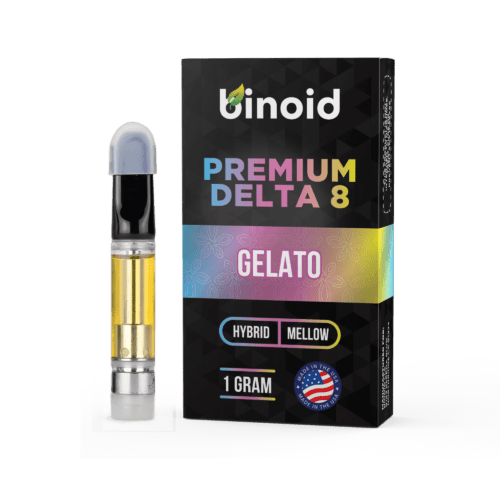 Delta 8 THC Vape Cartridge – Gelato$25.99
Delta 8 THC Vape Cartridge – Gelato$25.99$54.99
What Is THC?
THC: THC stands for Tetrahydrocannabinol. THC is known as the chemical and cannabinoid that creates a psychoactive effect, or the “high” feeling found from smoking Marijuana. THC activates your brain neuroreceptors to initiate this feeling, much like how other internal neuron messages create other feelings in your brain. When THC attaches to these receptors, it usually affects the pieces in your brain that control movements, memory, concentration, thinking, pleasure, sensory and time perception, and coordination.
By stimulating these neuroreceptor cells, THC induces the release of dopamine, which gives the euphoria effect.
Possible Negative Side Effects of THC From Studies:
- Change In Thinking
- Hallucinations
- Dry Mouth
- Possible Delusions
- Anxiety
- Paranoia
- Fast Heartbeats
- Short-Term Memory Loss
- Slow Reaction Time
- Red Eyes
Possible Positive Side Effects of THC From Studies:
- Elation (Happiness)
- Relaxation
- Sedation: For those who have difficulty sleep or need assistance sleeping.
- Pain Relief
- Low Appetite: THC has been found to increase people’s appetite, otherwise known as the “munchies”. This may be beneficial for those who want to gain weight.
- Anxiety Relief: For some
As you can see, the benefits may be worth it for some, but for many the side effects can be too much to make THC worth it. Especially for those who react negatively to the compound. This includes myself. This is one downside of THC.
In addition, THC can have other consequences. The side effects of THC can be fairly substantial and not ideal for many people for one large reason. This is due to the psychoactive effects of THC. The “high” feeling has the ability to cause physical impairment, preventing people from doing most motor-related actions for at least 3 hours.
People who are looking for medical relief from medical cannabis might prevent them from doing other productive things. Or things that they need to complete. For how effective THC can be for many people, this is one major downfall of the compound.
This is also why the other compound we will soon discuss in detail is so valuable. But first, there is another important compound and less known component that plays a roll with CBD and THC. The compound is called Terpenes. Or Terpenoids, which are terpenes that have been adjusted for specific reasons.
What are Terpenes?
It has also been studied that terpenes, which are a chemical found inside of the cannabis plant that is responsible for fragrance and smells of the plant, have been found to reduce the negative results and effects of THC. There are around 100 different terpenes identified in the cannabis plant, each with different fragrances and smells.
Terpenes that have been modified for different desired effects, fragrances and uses are called Terpenoids. Terpenoids include different strains and different types of Terpenes.
These include:
- Limonene
- Pinene
- Myrcene
- Betacaryophyllene
- Linalool
Terpenes are one of two compounds that can effectively modulate the negative effects of THC. The other is what you probably guessed, CBD.
What is CBD?
CBD is what would be considered an anti-THC. Or the yin to THC’s yang, if you wanted to make an analogy. CBD has been found to offset and even limit the high created by THC, according to this study from 2009.
The reason why there is some confusion over the two cannabinoids is that they are both prevalent in the cannabis sativa plant. However, they are mostly concentrated in two different plants. A high concentration of THC can be found in the Marijuana plant of cannabis, while a high concentration of CBD can be found in the Hemp plant of cannabis.
As a refresher, CBD stands for cannabidiol, and is the other major cannabinoid found in the cannabis sativa plant. Unlike THC, cannabidiol has no psychoactive effects, and does not induce a high.
What Does CBD Do?
CBD is a lesser known compound that has been recently coming into the spotlight as a beneficial compound for many different things. Studies about CBD are preliminary, and need to evaluated more before making any definitive conclusions, but initial findings suggest that CBD can be beneficial for many things ranging from pain relief, anxiety and sleep relief, to even seizure relief. Here is an in-depth list of 28 proven health benefits of CBD.
CBD affects your brain much like how THC does. Based on research, when absorbed into your body either sublingually, inhaled through vapes, or digestion, the CBD attaches to receptors in your brain messages basically telling your brain to relax or “stop” symptoms and feelings such as pain, anxiety, sleep and others.
In fact, just recently in early 2018, the first CBD infused treatment for two rare types of seizures was released for medical use. The name of the treatment is called Epidiolex, and it is the first FDA-approved treatment that contains content that previously was labeled as a Schedule 1 drug. Hemp-derived CBD is no longer a schedule 1 drug, but that is a completely different topic.
In comparison to THC, CBD can be thought of as the “medical” component of cannabis. Although most CBD products originate from a different plant as THC. The term medical can be misleading however, as CBD has not been completely evaluated for its medical components and benefits. Therefore, CBD is also in a gray area of legality. Much like THC and Marijuana.
An addition to CBD not having any psychoactive effects unlike THC, CBD also has zero major side effects based off initial studies. There are around 11 possible side effects of CBD to watch out for, however any side effect may be deemed rare. Except this cannot be claimed by any brand or company.
-
Product on sale
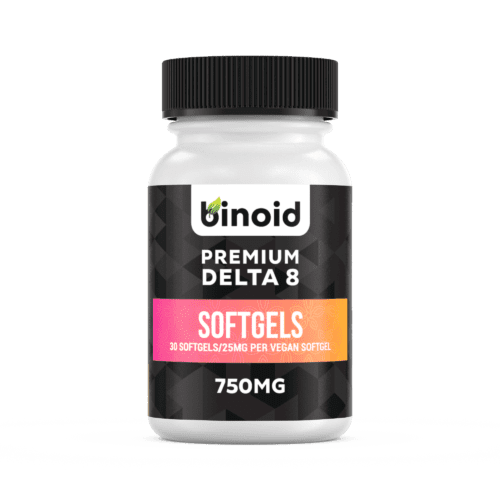 Delta 8 THC Capsules 750MG$31.99
Delta 8 THC Capsules 750MG$31.99$69.99
What Is The Scientific Different Between CBD vs THC?
This scientific difference is due to the way CBD and THC interact with our brain and neuroreceptors. Specifically our cannabinoid receptors CB1 and CB2. Both of these receptors is high THC induces its high, and how CBD is found to provide medical benefits towards the body.
THC and CBD both bind to the CB2 receptor the same. However, it has been fine that only THC activates and completely to the CB1 receptor directly. This causes the psychoactive effects and the high that we feel.
On the other hand, CBD was found to not directly bind to the CB1 receptor. This is why CBD does not have any psychoactive effects or high.
Summary of CBD vs THC Similarities & Differences List:
Similarities:
- Same Plant Family
- Both Have Benefits
- Found in Both Hemp & Marijuana
Differences:
- Different Cannabis Plants
- Affect CB1 and CB2 receptors differently
- Different Side Effects: High vs No High
- Different Legal Standing
CBD vs THC Legality?
The legal differences between CBD and THC is also fairly substantial. And let’s just start by saying you will get in much less trouble using CBD than THC for one. That may be obvious, but CBD is also not completely of the hook yet. Although CBD is completely legal federally, CBD is still in a grey zone with the FDA (Food and Drug Administration due to issues regarding medical claims by companies and brands, extraction process regulation and norms, as well as third party lab test results.
Additionally, the FDA has been consistent in rejecting CBD as a dietary supplement. However, Scott Gotttieb, the newly former head of the FDA, just stated this last week that the FDA will be reviewing a lot of CBD evidence and facts May 31st to see if they should reclassify CBD as a dietary supplement.
From this event, plus subsequent decisions would make the regulation of CBD and clean up the grey area currently however over CBD products.
THC on the other hand, comes from Marijuana, which is still a controlled substance under federal law. This means that THC is considered illegal, even though medical Marijuana could be legal statewide. Federally, the substance is still illegal. Therefore, many companies drug test for THC. This is also a major thing to keep in mind when taking CBD in conjunction with drug tests.
-
Product on sale
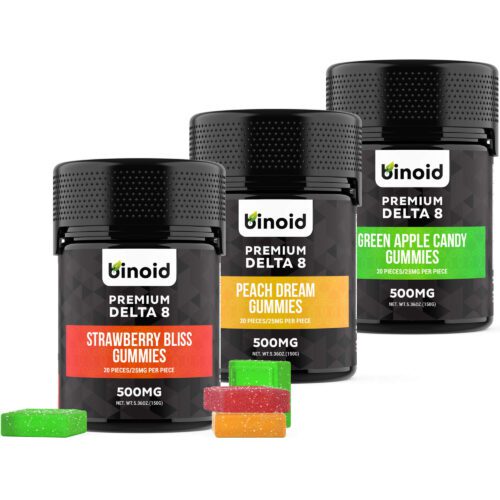 Binoid Delta 8 THC Gummies – Bundle$73.99
Binoid Delta 8 THC Gummies – Bundle$73.99$119.97

